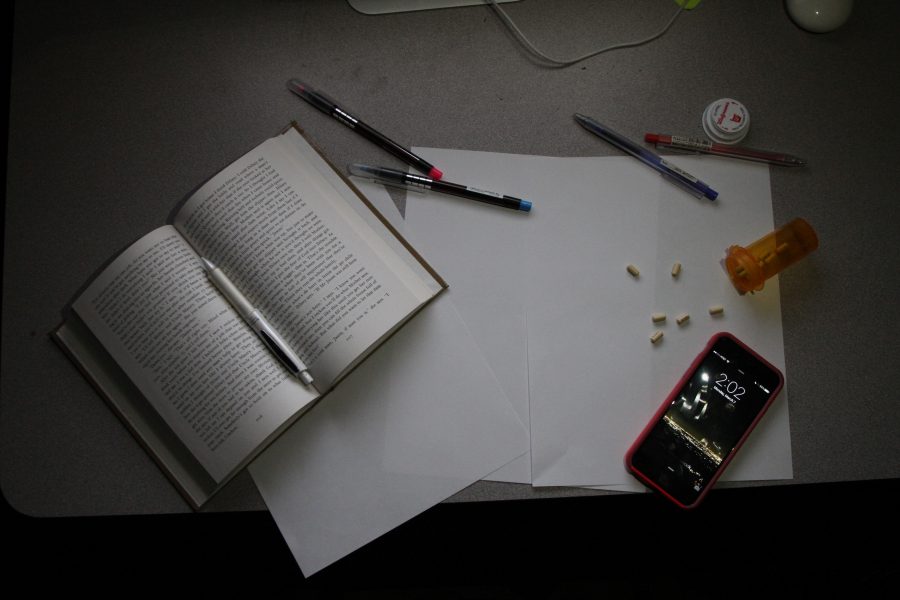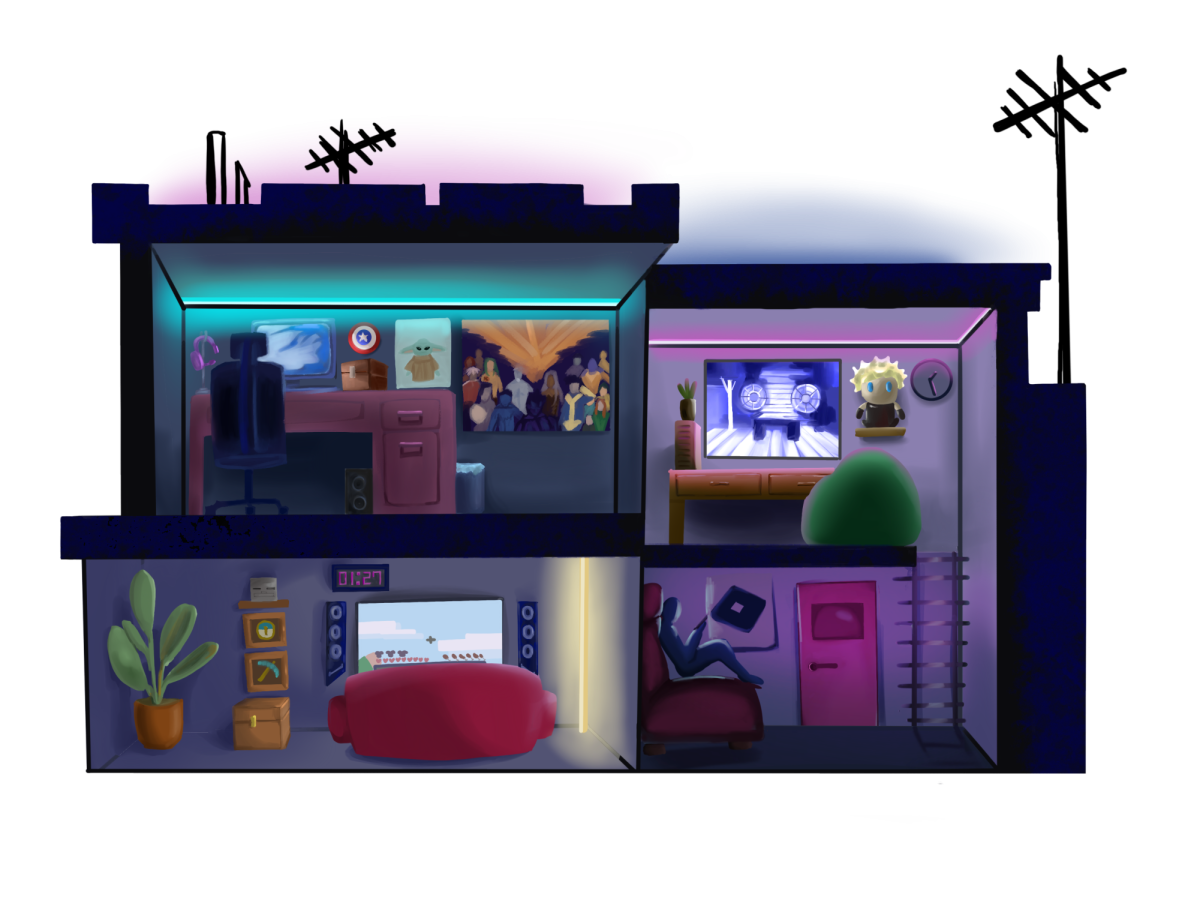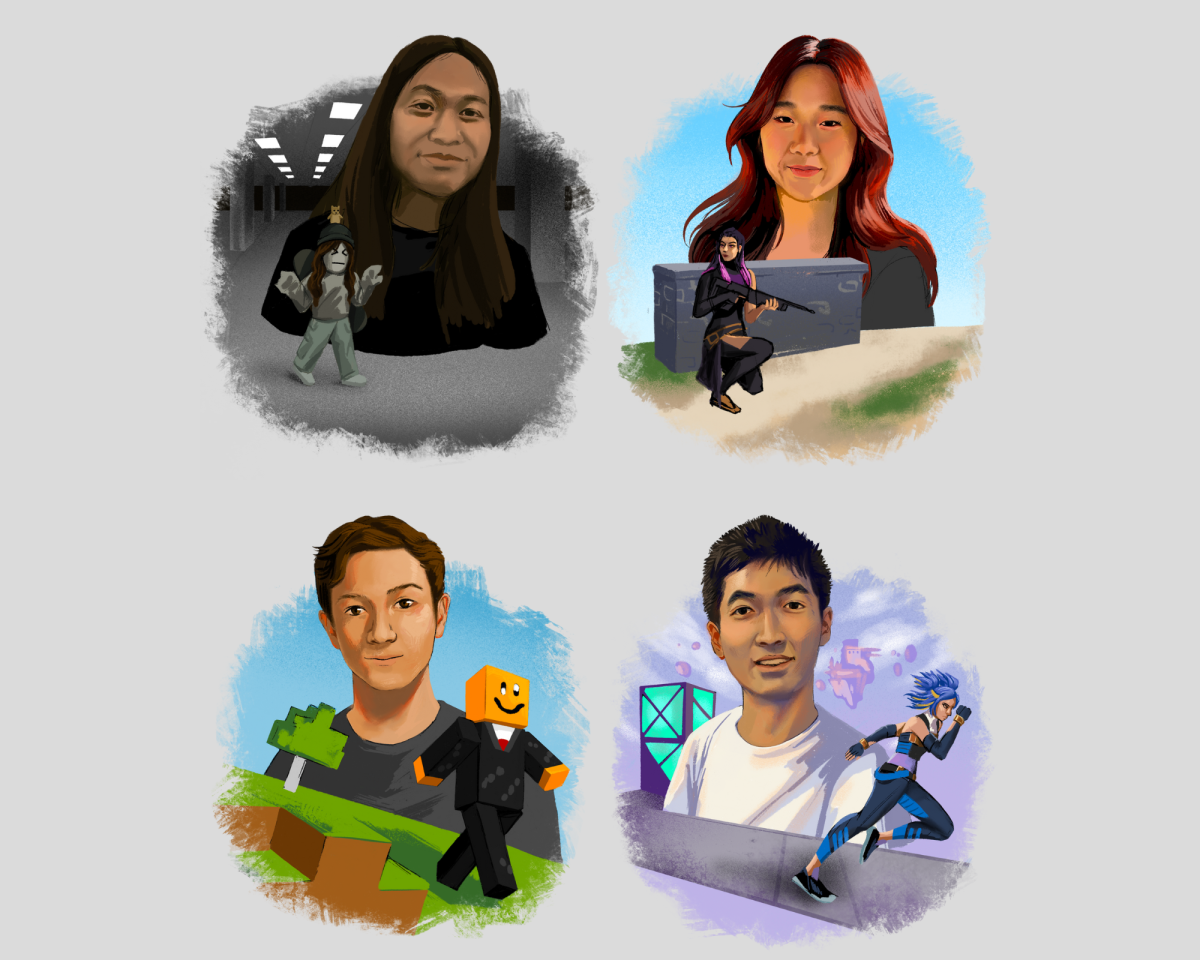Written by Michael Chen, Tone Lee and Lena Ye
Susie Holloway, a Gunn senior whose name has been changed to protect her identity, glances at the clock. It is getting late. She cannot focus and feels a wave of drowsiness flood her. With multiple tests the next day, loads of homework and not much time, she is pushed to the limit.
Looking at the tiny orange pill in her hand, she remembers how her friend had recently gave her an Adderall pill and told her that it would help her study and stay focused and awake. She deliberates for another moment and then swallows it.
The culture on campus
Adderall stimulates chemicals in the brain, which makes the user hyperactive and focused. Because of this elevated sensitivity, some students at school take it to help boost academic performance. “The first time I took it, I felt abnormally focused and concentrated,” Holloway said. “My [lethargy] quickly faded and was replaced with a renewed energy. I studied the entire night and took my tests on the drug, but I had a ton of trouble falling asleep the next few days. On top of that, I felt a loss of appetite.”
When academic stress is high, Adderall sales spike. “A time when a lot of people use Adderall is during finals week and the dead week before finals week,” Ostacher said. “My friends who sell Adderall definitely see an increase of profit during this two week period in comparison to the other times of the year.”
The three most common types of prescription drugs are painkillers, depressants and stimulants. Sophomore Jacob Ostacher was diagnosed with Attention Deficit Disorder and uses Adderall to deal with its symptoms. “It’s difficult for me to explain how it affects kids because when I use it, it just allows me to function as a regular kid when doing work,” Ostacher said.
However, not all students use prescription drugs for its prescribed purposes. Students will take prescription drugs for reasons that range from curiosity to peer pressure. In a study published in the December 2015 issue of the Drug and Alcohol Dependence, researchers found that of the adolescents surveyed who had used prescription drugs in the past 30 days, 54 percent reported non-medical usage. After continued usage, the drug becomes addictive and then recreational use often turns into abuse. Dr. Wilson Compton from the National Institute on Drug Abuse says that addiction can come as a surprise to many. “As people try these substances, some of them will find that they really like them,” Compton said in an interview with WebMD. “They take more of them and they continue to take them, even when they no longer want to. And that’s the hallmark of addiction. It creeps up on people in very subtle and unexpected ways. No one starts out taking a drug, saying, ‘I want to be an addict.’”
Once addicted, prescriptions drugs are hard to quit. According to WebMD, they mutate the shape and function of the brain and cause the user to become dependent on the drugs. “I know people who aren’t prescribed and are completely addicted,” junior Olivia Eck said. “They can’t do any work without Adderall.”
Academic performance-enhancing drugs like Adderall are popular due to a desire to succeed in school. “I don’t think the goal is to have fun,” senior Avery Robinson said. “School is overwhelming if mental health breaks aren’t options for someone. I think unhealthy ways of coping with stress will naturally occur, such as Adderall [usage].”
Robinson’s friend took Adderall before a test. “She showed up to school tired since Adderall affects the sleep schedule and she couldn’t sleep until 6 a.m,” Robinson said. “She took the test that she used the drug to study for, then went home.”
Some students look to prescription drugs as an outlet for stress relief. Xanax is a depressant, used to treat anxiety and panic disorders. Depressants produce a different high from stimulants; while stimulants allow users to become more focused and energetic, depressants are designed to relax the user. “When taking Xanax, people generally just want to have a fun time and get hammered,” Ostacher said. “[My friends] take it to let their worries to kind of melt away. I would say that my friends are looking to journey into a new and different type of high.”
However, issues come up with continued usage of the drug, something that sophomore Antoine Nguyen has noticed among his friends who abuse prescription drugs. “Adderall, if used too often—[you] can become dependent,” Nguyen said. “If you use it and study on Adderall, it will make it hard to study without it. Adderall also suppresses hunger so when taking Adderall you will lose weight if you take too often.”
Drug and Alcohol Dependence reported that “teens who only used stimulants non-medically reported more conduct problems at home and school and higher rates of using other substances…[and] was also more likely to have close friends who have tried other drugs.” According to the National Institute on Drug Abuse, high doses of stimulants can cause irregular heartbeats, dangerously high body temperature, heart failure, seizures or death. The Center for Disease Control and Prevention states that in 2014, there were more than 25,000 deaths due to prescription drug abuse.
According to Mental Health and Wellness Coordinator Joanne Michels, the implications of abusing prescription drugs are murky. “If a student is not being seen by a professional, then there could be some potential for misuse, without knowing what the side effects would be,” Michels said. “Stimulants do change the chemistry of the brain and alter how we function. And when a doctor is working closely with a patient on medication they’re able to monitor and provide the best recommendations for that particular student.”
Choosing to abuse prescription drugs also bypasses an important aspect of using prescribed medication, says Michels. “It’s a personal choice that students make with their parents and so family support is really important when students are taking medication.” Michels said. “So it’s a pretty important choice to make, and when students are not under the care of a prescribing doctor then there could be consequences, possibly addiction, because these are pretty powerful drugs.”
The drug, nevertheless, reaches a range of users, according to the Addiction Center. “When it comes to Adderall at Gunn, the kids using it range from the stoner who is always high in class, to the opposite kid who maintains a 4.0 grade point average and is getting the best scores in every one of his classes,” Ostacher said.
The dangers of misuse
Prescription drugs are difficult to recognize. It is impossible to know by sight whether somebody has a prescription, so prescription drugs can be taken in public without scrutiny. Other drugs are more easily detected. Marijuana has a distinct, pervasive smell. Heroin leaves track marks. Most recreational drugs have tells, like dilated pupils. Prescription drugs, however, cause more internal than external reactions. Nausea and diarrhea are commonly listed side effects, and these are harder to attribute to drug abuse than the tells of other kinds of drugs.
Principal Dr. Denise Herrmann had experience dealing with prescription drugs at the previous school she worked at, but has not seen any reported incidents of it at Gunn. “I know of a couple different cases across California or across the nation where it happens, and those would be some of the same circumstances that our students would have,” Herrmann said. “Because our students have access and they’re teenagers, that could be happening at our campus too.”
Different types of prescription drugs affect the user in different ways. “A stimulant amps you up, and it gives you more energy and efficiency,” Dr. Tiffany Tse said. “Depressants lower your mood and anxiety, and that calms you. Pain medication decreases your pain, so you feel less anxious and more comfortable.” Prescription drugs are consequently met with a variety of punishments, making it difficult to enforce consistency within punishments.
Ostacher believes that some students might be underestimating the severity of prescription drugs. “People at Gunn have a misconstrued perception that Adderall is way safer than Xanax and has no potential dangers, so there’s definitely a larger group of people who take adderall,” Ostacher said. “I think more and more kids are using Adderall because more and more kids see it as harmless.”
Prescription drugs carry with them a multitude of issues that are exacerbated by a lack of knowledge. What makes prescription drug abuse more attractive is the perception that most prescribed medications are more helpful than harmful, says Michels. “I think people see medications as support or an aid,” Michels said. “And I think sometimes people might confuse taking something like medication with this magical experience of having problems just go away.”
Michels says other temptations stem from the precedent of beneficial use established by peers. “Seeing other people or knowing other people who have benefited from medication could be an attraction point,” Michels said. “Like, ‘If they had a good experience with it then maybe I’ll have a good experience with it.’”
Repercussions of prescription drug abuse
The most recent Gunn student handbook details the punishment for possessing a drug as suspension, which the superintendent or principal may recommend to be increased to expulsion if deemed necessary. Dealing a controlled substance is met with a harsher consequence, and the punishment is suspension and a recommendation for expulsion.
Dealing drugs is an offense ranked among others such as possessing a firearm or explosive and attempting to commit sexual battery. Herrmann, however, has a different perspective on appropriate repercussions. “I am much more a person who believes consequences should be natural—not punitive,” Herrmann said. “For example, if someone is the user, the best thing for them would be very mild consequences and strong support. It becomes different if the student is dealing or providing the drug to other people, where the impact is not just themselves, but other people as well. The consequence is typically higher because you’ve harmed two levels of people within our organization.”
Herrmann hopes to decrease the punishment of possessing drugs to a suspension of three days. The suspension can be decreased if a student opts to attend a drug or alcohol advisory program. Similarly, if a student turns himself in, or is turned in by one of his friends, the punishment is reduced.
Although Herrmann wishes more students would self-report, she acknowledges there will always be cases where students will not seek help from the administration. If the student does not want to turn himself or his friend in, another option is to seek help from a therapist or the Adolescent Counseling Services on campus. “The things that happen between a student and a therapist—that’s confidential,” Herrmann said. “Those are not things that I learn about, or other people. And that’s how it should be.”
Michels also urges students to talk to adults for help. “Reaching out to either a trusted adult, whether that’s a teacher, an administrator, or any staff member here at school, or a counselor, someone in the helping profession, would be a good place to start at school,” Michels said. “[A counselor] would be a great person to start a conversation with as far as what concerns a student has and then through that conversation learn what would be the next step in connecting people to help if needed.”
No matter what step towards help they take, people who are addicted need empathy and support, says junior Albert Malik. “The core problem of it is that it’s a substance abuse problem,” Malik said. “People who are taking drugs and are addicted to them; they need help, not judgment.”
If you or someone you know is addicted, you can reach out to Adolescent Counseling Services on campus, or the Substance Abuse and Mental Health Services Administration Hotline: 1-888-319-2606.












